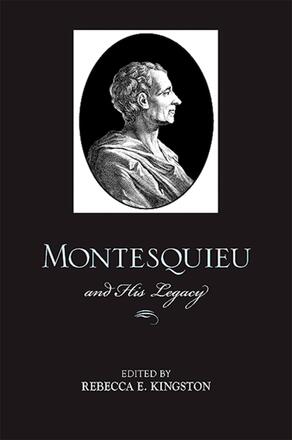
Montesquieu and His Legacy
Alternative formats available from:
Essays on Montesquieu and the influence of his thought from the eighteenth century to today.
Description
Montesquieu (1689–1755) is regarded as one of the most important thinkers of the Enlightenment. His Lettres persanes and L'Esprit des lois have been read by students and scholars throughout the last two centuries. While many have associated Montesquieu with the doctrine of the "separation of powers" in the history of ideas, Rebecca E. Kingston brings together leading international scholars who for the first time present a systematic treatment and discussion of the significance of his ideas more generally for the development of Western political theory and institutions. In particular, Montesquieu and His Legacy supplements the conventional focus on the institutional teachings of Montesquieu with attention to the theme of morals and manners. The contributors provide commentary on the broad legacy of Montesquieu's thought in past times as well as for the contemporary era.
Rebecca E. Kingston is Associate Professor of Political Science at the University of Toronto and author of Montesquieu and the Parlement of Bordeaux.
Reviews
"Kingston has brought together 15 thoughtful essays from a distinguished group of international scholars on the thought and intellectual legacy of Montesquieu … they are well crafted and deserving of a close reading by specialists in a variety of disciplines." — CHOICE
"Rebecca Kingston brings together an important and diverse group of voices, representing a variety of disciplines and orientations on arguably the most important French political thinker in the first half of the eighteenth century. This book brings intellectual history and political theory together, and it is focused on the 'informal aspects of political community' in Montesquieu's thought. Intellectual historians have long been writing about sentiment, manners, and moeurs in eighteenth-century European thought, but this book does a marvelous job connecting this important strand in Montesquieu's thought with a more complicated liberal legacy he helped to inspire." — Fonna Forman-Barzilai, University of California at San Diego